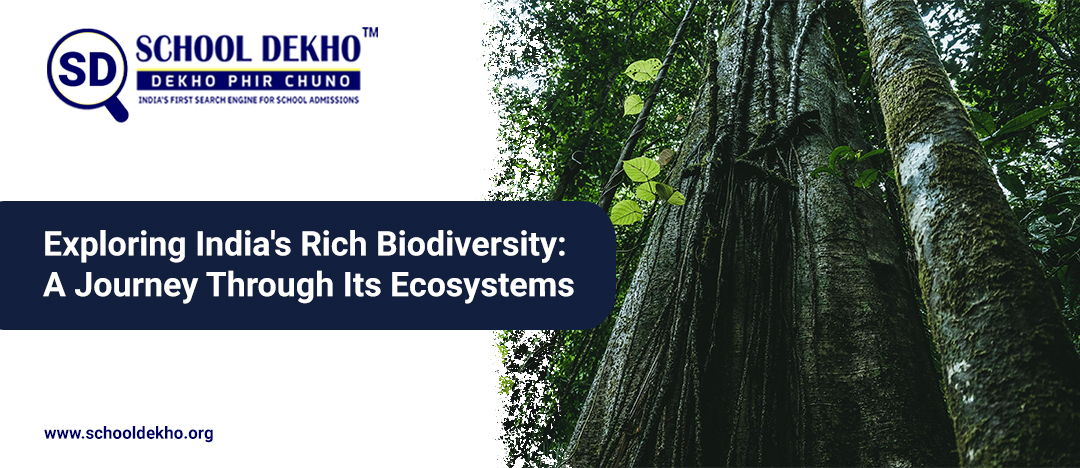
Exploring India's Rich Biodiversity: A Journey Through Its Ecosystems
India, a land of remarkable diversity, boasts a vast array of ecosystems that range from the lush tropical rainforests of the Western Ghats to the arid deserts of Rajasthan. Each of these ecosystems plays a unique role in India's rich tapestry of biodiversity.
In this blog, we embark on a journey to explore the extraordinary variety of ecosystems that make India a biodiversity hotspot and discover the fascinating flora and fauna that call these environments home.
Tropical Rainforests of the Western Ghats
Nestled in the southwestern part of India, the Western Ghats are a UNESCO World Heritage Site known for their breathtaking landscapes and exceptional biodiversity. These lush rainforests are home to a stunning array of species, including the Bengal tiger, lion-tailed macaque, and an astonishing diversity of birdlife. The region is also famous for its vibrant orchids and endemic plant species.
The Mighty Himalayas: Alpine and Subalpine Ecosystems
India's northern border is graced by the majestic Himalayan mountain range, which encompasses a range of ecosystems, from dense forests to alpine meadows. This region is home to the elusive snow leopard, the Himalayan monal, and the exquisite rhodendron forests that bloom in a riot of colors.
Thar Desert: A Harsh Beauty
In the northwest, the Thar Desert paints a stark yet captivating picture of survival in extreme conditions. Here, you'll find unique species like the Indian bustard and the Indian gazelle. The desert also boasts hardy desert flora like the Khejri tree and various cacti.
Mangrove Forests of the Sundarbans
The Sundarbans, the world's largest mangrove forest, is a sprawling labyrinth of waterways and thickets along the Bay of Bengal. This unique ecosystem is home to the Bengal tiger, estuarine crocodile, and countless migratory birds. The mangroves themselves are a haven for biodiversity, with specialized flora and fauna adapted to brackish waters.
The Deccan Plateau: Scrublands and Grasslands
Central India's Deccan Plateau boasts diverse ecosystems, including scrublands and grasslands. This region is home to the critically endangered Great Indian Bustard and the blackbuck, an antelope species. Unique plant species like the flame-of-the-forest tree add to the region's ecological richness.
The Backwaters of Kerala
Kerala's backwaters form a distinct aquatic ecosystem. These serene waters are teeming with life, including fish, crustaceans, and migratory birds. The region is also famous for its unique network of water-based transportation and the coexistence of human communities within this aquatic environment.
Eastern Himalayan Biodiversity Hotspot
The eastern Himalayas, stretching across northeastern India, are renowned for their pristine landscapes and biodiversity. The region is home to elusive creatures like the red panda and the clouded leopard. The lush forests are adorned with stunning orchids and rhododendron species.
Preserving India's Natural Heritage
India's incredible biodiversity is a testament to the country's commitment to conserving its natural heritage. These diverse ecosystems not only support unique flora and fauna but also provide essential ecosystem services to human communities. As we embark on this journey through India's ecosystems, it becomes clear that protecting and preserving these environments is not just a matter of ecological responsibility but also a celebration of the stunning natural beauty that surrounds us.
Contact with Us
Call: 1800 - 2588 - 074
Mail: info@schooldekho.org
Student’s Best Education Portal | School Dekho | India's First School Search Engine | Best Schools Near Me | Find Schools Near Me | Dekho Phir Chuno
#dekhophirchuno







Leave your thought here
Your email address will not be published. Required fields are marked *